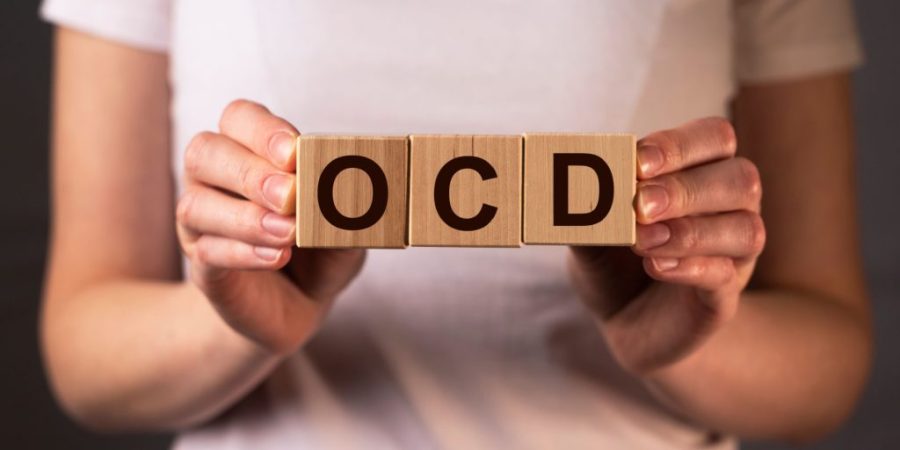
From Springbrook Hospital –
Living with a mental health condition like obsessive compulsive disorder can be extremely challenging. While it was once thought to be untreatable, recent developments in OCD treatment have given patients a lot of hope that they can manage the symptoms of this mental illness. Read on to learn more about what this condition is, its surprising symptoms, and the latest on OCD treatment near you.
Table of Contents
What Is Obsessive Compulsive Disorder (OCD)?


Obsessive compulsive disorder (OCD) is a mental health condition that impacts the way a person can think, feel, and behave. People with OCD frequently have unwanted and intrusive thoughts, coupled with intense feelings of anxiety. Typically, they feel compelled to do certain behaviors repetitively in an attempt to regulate the distress that they feel.
The “obsessive” part of this condition is what the thoughts focus around. In this context, “obsessive” means entirely consumed. Somebody with OCD can be hyper-fixated on their interests, fears, and other uncontrollable thought patterns. Compulsions, also known as rituals, are actions or behaviors that often don’t make logical sense, but the person feels as though they have no choice but to do them.
This can leave people with OCD feeling out of control. The emotional dysregulation can be intense and very challenging to deal with. This is why many people with OCD often have co-occurring mental health conditions as well, such as anxiety, depression, and/or substance use challenges. In these cases, specialized OCD treatment through dual diagnosis programming can be most beneficial in helping the patient with all aspects of their mental health recovery.
What Are the Symptoms of OCD?


When you picture OCD, you might think of somebody washing their hands repeatedly because they are afraid of falling ill. Or you might think of somebody checking the lock on their front door a specific number of times, even though they know it is locked each time they check. While these are certainly manifestations of behaviors for some people with OCD, the truth is that this disorder can look very different depending on the type of OCD, severity, and whether or not the person is receiving any OCD treatment.
Obsession and compulsion symptoms can also look like:
- Thoughts about doing or being harmed
- Unwanted sexual thoughts
- Specific fears
- Organizing and cleaning
- Counting
- Seeking reassurance from others
As these symptoms show, OCD is complex. This is why it is recognized as its own category of mental health disorder rather than being grouped with other anxiety disorders in the DSM-5.
The most important aspect to look at when getting a diagnosis for OCD is its impact on the person. When the obsessions, compulsive behaviors, and overall distress prevents someone from being able to function and thrive, that’s when OCD treatment is needed.
What Does OCD Treatment Look Like?
There are a few different OCD treatment options that are effective in helping to reduce the daily disruptions. The most effective treatments include:
1. Medication evaluation: Many people with OCD need a combination of intensive treatment and medication. Medications like selective serotonin reuptake inhibitors (SSRIs) can be particularly useful as part of OCD treatment. This is because these medications allow more serotonin, the hormone that helps you to feel happy, to go through the body’s nervous system. As a result, people on SSRIs often feel happier, less anxious, and more capable when it comes to managing OCD symptoms.
What’s important to note about medication evaluation as a form of OCD treatment, though, is that you should always work with a mental health professional to be sure that you are receiving the correct dosage and that there are no harmful side effects. This is especially urgent for people with OCD who also struggle with substance use disorders. Finding the right balance between medication and therapies can make a huge difference in lessening the severity of OCD as long as it is done through the right treatment facility.
2. Cognitive behavioral therapy (CBT): This type of therapy can assist people with OCD in changing harmful thought patterns and behaviors. With this OCD treatment, patients work with a mental health professional to observe, address, and alter unhelpful thoughts and actions into healthier coping mechanisms. These coping mechanisms include emotional regulation, distress tolerance, mindfulness, and more. Since OCD involves having obsessive thoughts that often cause unregulated emotions, CBT can be particularly useful. CBT helps to connect the mind to the body in times where things feel out of control
3. Exposure and response prevention (ERP): ERP is a specific type of cognitive behavioral therapy that has been revolutionary for OCD treatment, with research showing that at least two-thirds of people with OCD who received ERP therapy either saw improvement or complete recovery from symptoms.
ERP is essentially a “face your fears” approach to OCD. What this means is facing the obsessions head on and then working to manage the way the mind and body responds to these fears. For example, somebody with OCD who is fearful of touching a doorknob because of the germs on it might practice putting one finger on a doorknob for 10 seconds.
After, they would reflect and evaluate their levels of anxiety. They would then do this multiple times and increase the level of exposure (i.e., putting their whole hand on the doorknob) until their anxiety has gotten to a point where it is either tolerable or gone completely. ERP can be intense for people with OCD in the moment, but it often leads to long-term success.
These OCD treatments are available through intensive treatment programs for OCD. In an intensive treatment program, you will collaborate with a recovery expert to decide on the best treatment path for you based on your current symptoms and recovery goals. Depending on your treatment needs, you might also benefit from services such as:
- Group therapy
- Family sessions
- Psycho-educational focus groups
- Medication education
- Discharge planning
Where Can You Find Treatment for OCD?
Springbrook Behavioral Hospital is a mental health and addiction recovery facility that provides care for people who are struggling with OCD, substance use, and other mental illness symptoms. We offer effective OCD treatment options so that you can learn to manage this challenging condition. For more information on OCD and your treatment opportunities, give us a call at (352) 436-8598 or complete a confidential contact form with your inquiries. No matter how you choose to reach out, know that at Springbrook Behavioral Hospital, you’ll have one less thing to worry about.
The post Looking for OCD Treatment? Here’s What You Should Know appeared first on Springbrook Hospital.
Source
Original Author: Springbook Hospital

